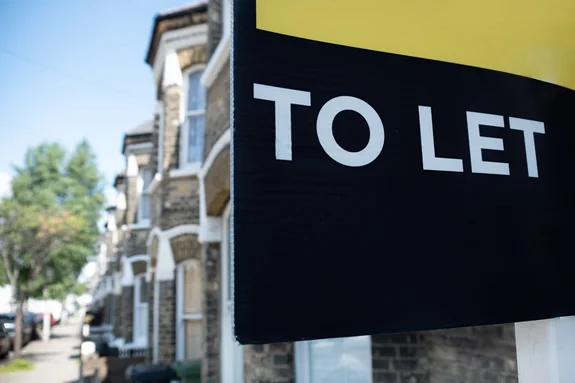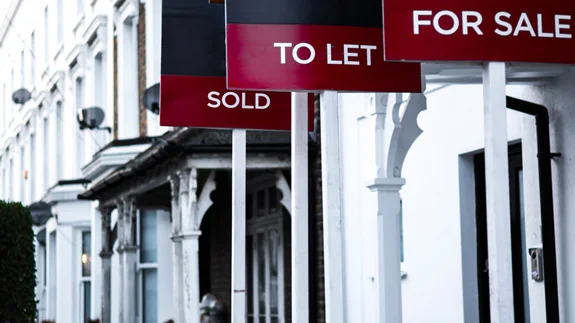Manchester is the UK’s New Buy to Let Hotspot
Manchester has risen through the ranks to become the UK’s most appealing and profitable prospect for buy-to-let investments. That’s according to the latest figures from Aldermore’s Buy to Let City Tracker, which positions the city of Manchester above all other UK regions as the country’s new hotspot.
The second-best location for buy-to-let investments was Cambridge, followed by London in third place.
Aldermore’s tracker takes a number of factors into consideration, ranking towns and cities by way of short-term rent yields, average monthly rent prices, long-term returns through increasing house prices, the strength of the rental market in the region, and the total housing stock available.
Major residential and commercial development projects across Manchester since 2015 also contributed to its newfound status as a top buy-to-let location, according to Aldermore.
Key points of appeal
Manchester has one of the lowest overall vacancy rates and available property inventories of any comparable city, resulting in an average annual house price growth of 4.1%.
In addition, private landlords operating in Manchester benefit from consistently solid rental returns. Fuelled by a city with one of the largest private rental markets in the UK, 31% of those living in Manchester currently rent privately.
Speaking on behalf of Aldermore, head of mortgage distribution Jon Cooper highlighted Manchester’s growing potential as a safe haven for buy-to-let investments.
“There has been a high level of uncertainty for landlords since the COVID-19 outbreak, and they have had to continuously adapt to a raft of challenges, but with so many working from home right now, it reinforces the importance of a robust and diverse private rental sector,” he said.
“The changing needs of renters, whether to move to a new location or a different type of property to fit flexible working demands, have created investment opportunities for landlords.”
“The private rented sector is vital to the economy right now and its recovery from the pandemic, so landlords should seek portfolio advice from their lenders to see how they can look at new ways to support the sector.”
Compare the Market Fined £17.9 Million for Artificially Inflating Insurance Costs
Price comparison site Compare the Market has been handed a £17.9 million penalty for falsifying information presented to customers. The service that enables customers to compare the market for mortgages, insurance, and other financial products faces accusations of artificially inflating home insurance costs.
The Competition and Markets Authority (CMA) reports that Compare the Market unfairly prevented insurers from advertising their products at lower prices elsewhere. This may have subsequently prevented thousands or even millions of consumers from accessing the best possible deals on their insurance premiums by providing them with misleading information.
Compare the Market has subsequently responded, stating that the company “fundamentally” disagrees with the ruling and maintains its innocence.
“We fundamentally disagree with the conclusions the CMA has drawn and will be carefully examining the detailed rationale behind the decision and considering all of our options,” read the statement issued by Compare the Market.
Limiting access to competitive deals
Compare the Market was created for the sole purpose of simplifying the process of comparing offers from as many providers as possible in order to access the best possible deal; however, the accusations of the CMA suggest that those who used the service to compare the market for insurance quotes may have been deliberately denied access to the most competitive offers.
“Price comparison websites are excellent for consumers. They promote competition between providers, offer choice for customers, and make it easier for consumers to find the best bargains,” commented Michael Grenfell, speaking on behalf of the Competition and Markets Authority.
“It is therefore unacceptable that Compare the Market, which has been the largest price comparison site for home insurance for several years, used clauses in its contracts that restricted home insurers from offering bigger discounts on competing websites, so limiting the bargains potentially available to consumers.”
Furthermore, the published findings of the CMA included the following conclusions:
- The insurers bound by the contracts were prohibited from offering cheaper deals on other price-comparison websites.
- Rival comparison sites could not offer lower prices, for example, by lowering their commission fees to encourage insurers to quote lower prices on their platforms.
- Without the clauses, Compare the Market itself would have had to compete harder to get lower prices from the home insurers.
In an interview with BBC Radio 4, Mr Grenfell accused Compare the Market of ‘anti-competitive’ activities that ultimately stood to both harm the competition and prevent customers from accessing the best possible deals on their insurance products.
“We show that it had real anti-competitive effects, that there were cases where insurance companies wanted to offer promotions or discounts on other websites, and they were prevented from doing so as a result of the clauses,” Mr. Grenfell told the BBC.
The investigation into Compare the Market’s anti-competitive behaviour was conducted over the course of three years. The company has since indicated its intent to challenge the ruling.
If looking to get the best possible deal on a loan, mortgage, or financial product of any kind, compare the market in its entirety with the help of UK Property Finance.
Up to 250,000 Mortgage Payers Held ‘Prisoner’ by Their Lenders
Over the past decade, the number of mortgage payers trapped in highly uncompetitive deals has skyrocketed. According to the latest figures published by the London School of Economics, as many as 250,000 mortgage ‘prisoners’ are paying exponentially more than the average rate of interest on their loans. Work out what mortgage would cost by using our UK mortgage calculator
Many of whom are being forced to pay double the interest that would be payable on a more competitive fixed rate deal.
This is proving particularly difficult during the coronavirus pandemic, as household budgets are stretched to and in some cases beyond breaking point. New data suggests that these mortgage prisoners are as much as 40% more likely to default on their loans than other borrowers, as a result of the pandemic.
Imprisoned in high-interest loans
The term ‘mortgage prisoner’ is used in relation to those who are prevented from switching to more competitive deals by their lenders. Having started out with an affordable loan charged at a competitive introductory rate of interest, their mortgages were subsequently switched to variable rate loans by their lenders.
Over time, the interest rate on the loan gradually increases to such a point that the borrower is paying significantly more than the Bank of England base rate, or typical industry norms. Many of those affected today are paying in the region of 5% on their variable rate mortgages when introductory fixed-rate deals available elsewhere are charged from as little as 2%.
However, the terms and conditions of their loans disallow them from switching to a more competitive deal elsewhere.
Elevated risk of mental illness
The financial struggles of those affected have been directly linked with an elevated risk of mental illness. Many mortgage prisoners have suffered from chronic anxiety, stress and depression over fears of falling behind on their repayments and subsequently losing their homes.
Martin Lewis of Money Saving Expert spoke of the government’s ‘moral responsibility’ to step in and do something about the issue.
“Mortgage prisoners are the forgotten victims of the 2008 financial crash,” he said.
“The government at the time chose to bail out the banks, but unfairly., immorally, hundreds of thousands of their victims were left without adequate help, trapped in their mortgages and the financial misery caused by it. And they have been forgotten ever since,”
“There is a moral responsibility to release money to free mortgage prisoners from their penury,”
“Intervention can and will save lives.”
Commenting on behalf of the Treasury, a spokesperson offered non-binding reassurance that the government is aware of the issue and will continue to make efforts to support struggling mortgage payers.
“We know that being unable to switch your mortgage can be incredibly difficult,” read the response from the Treasury.
“Thousands of borrowers will now find it easier to switch to an active lender or continue interest-only payments thanks to recent rule changes by the Financial Conduct Authority – and we have been working closely with the industry to ensure more is done to help those who are eligible to switch,”
“We remain committed to looking for practical new solutions for borrowers who are struggling.”
The Housing Market Will Remain Active During The Second Lockdown
In what’s being heralded as a victory for both common sense and the economy as a whole, housing minister Robert Jenrick has confirmed that the UK’s housing market will remain active during the second lockdown.
The government recently outlined new restrictions with an initial end date of December 2, though the second lockdown is not expected to have nearly as devastating an impact on the housing market as the first.
In addition to confirming that the market will remain open, Mr. Jenrick also indicated that further details will be published by the FCA on new mortgage payment holidays for existing borrowers. He was also adamant in pointing out that those looking to relocate or purchase their first homes over the next four weeks will have every opportunity to do so.
“The housing market will remain open throughout this period. Everyone should continue to play their part in reducing the spread of the virus by following the current guidance,” he said.
“Tradespeople like [sic] electricians, plumbers, and repairers of domestic appliances can enter your home. They will need to follow social distancing guidance that has already been published,” he added, while confirming hardware shops will be authorised to continue doing business.
A question of demand
Though the decision to keep the housing market open during the second lockdown has been welcomed across the industry, some have questioned whether demand will be sufficient to sustain its performance.
Mortgage consultant Chris Sykes expressed concern over the likelihood of prospective buyers purchasing properties during lockdown, along with the extent to which the new restrictions could make it even more difficult to qualify for a mortgage.
“The question remains: how many people are going to be out and about viewing property given the circumstances?” he said.
“Ultimately, this is likely to entrench the current trends for those looking to move to houses with more space, both outdoors and to work remotely, and means areas outside major cities are likely to see higher demand than pre-COVID.”
“A second lockdown and the corresponding economic repercussions are exactly why mortgage lenders have been cautious of late.”
“We expect to see further restrictions on borrowing, certainly for those with deposits smaller than 20 per cent, with these products almost certainly becoming even harder to find, and those that are available will charge even higher rates to account for the risk.”
A less severe slowdown
While the second lockdown will inevitably have an impact on the housing market, most experts believe it will not be nearly as severe as the previous total shutdown.
“Thankfully, this second lockdown is unlikely to be as devastating as the first,” said Melanie Spencer of MCI Mortgage Club.
“But there will be a shrinkage of customers who work in affected sectors such as leisure, retail, and hospitality, as lenders will naturally adjust their risk appetites; therefore, for those fortunate not to be overly affected, they will still have the opportunity to take advantage of the stamp duty holiday, but it will create further divides between the haves and have-nots.”
“Finally, given the unknown quantities of the EU/UK trade agreement and the potential impact on the UK consumer in 2021 on affordability as duty on imported goods is likely to rise, we might just see the final push for property before we dive into even further uncertainty.”
Right to Buy Mortgage with Bad Credit: Will I Qualify?
Technically speaking, right to buy is not a separate mortgage category. Eligibility for a mortgage to fund a Right to Buy home purchase is established in the same way as a conventional mortgage; however, there is a separate mortgage category for bad-credit mortgage applicants, who would be unlikely to qualify with any mainstream lender. If you intend to purchase a property under the Right to Buy scheme and have issues with your credit history, it is essential to target specialist bad credit mortgage specialists with the help of an independent broker. You can even use our mortgage calculator in the UK to work out how much a mortgage would cost you.
Are bad-credit mortgages for the right to buy available?
The short answer is yes, although you are unlikely to find the support you need on the High Street. The specialist bad credit mortgage sector, aka subprime lending, is growing and diversifying and remains a facility most major banks and lenders are reluctant to offer or even fairly consider.
Subsequently, the key to finding and qualifying for a competitive bad credit mortgage lies in working with a specialist broker, who can compare the market on your behalf and find your perfect lender.
How can I tell if I have bad credit?
The three main credit reference agencies are Experian, Equifax, and Call Credit. Establishing if you have bad credit is therefore simply a case of checking your credit score with all or one of these three agencies.
If you have any questions, concerns, or doubts, they can be raised and discussed with your broker. If your credit score is low, specialist bad credit mortgages may be the only viable option. If your credit score is imperfect but far from catastrophic, you may be advised to work on improving it before applying for a mortgage.
Will I qualify for the right to buy a mortgage with bad credit?
The extent of the damage to your credit score will play a role in determining your eligibility or otherwise for a Right to Buy mortgage; however, specialist subprime lenders consider multiple additional factors alongside credit scores.
For example, your employment status, income level, current financial position and performance, assets, and other contributory factors will be considered. Ultimately, your lender simply needs to establish whether you are in a comfortable position to keep up with the repayments on your home loan.
How does bad credit affect the right to buy a mortgage?
Poor credit can affect a right-to-buy mortgage in the same way it affects any conventional mortgage. Interest rates and borrowing costs may be higher, and it may be more challenging to qualify in the first place; however, it is still perfectly possible to access an extremely competitive deal with expert broker support. Rather than approaching any lender directly with your application, you will find the process quicker, easier, and more cost-effective with a reputable broker in your corner.
For more information on any of the above or to discuss bad credit Right to Buy mortgage applications in more detail, contact a member of the team at UK Property Finance today.
House Prices Are Rising Fastest in These Key Areas
Attributed to an enormous spike of post-lockdown activity, house price growth across the UK is now averaging 3%, its highest in two and a half years. Many areas are experiencing record-high sales and property purchase queries as the market bounces back from one of its most turbulent years in recent history.
As it stands, cities in the north of England are seeing the strongest average house price growth of all. Zoopla has reported a huge 5.1% increase in average house prices in Nottingham. Manchester followed closely behind with an impressive 4.6% increase, followed by Leeds, where average house prices have climbed by 4.5%.
More importantly, Zoopla predicts that this growth will continue for the next few months at least, potentially pushing the overall average increase to 4% before the year ends.
Sales activity spikes in the south-east
Though the fastest house price increases have been recorded in the north, London and the south-east of England have recorded the biggest increases in property sales volumes.
According to Zoopla, agreed property sales in the South East for the year to date are up 15%, in contrast to the 3% average across the UK. London has also seen a huge spike in agreed property sales, up an impressive 12% year to date.
“Last year, sales volumes in southern regions were 20% lower than in 2015, which is why the rebound in demand has boosted sales so much in southern England,” Zoopla said.
Zoopla’s report also indicated that more properties are currently on the market than at the same time last year, with 18% more inventory than was available in October 2019. In addition, the average asking price for a property for sale today is around 10% higher than it was a year ago.
London has seen a wave of new inventory become available for prospective buyers, with a full 39% more homes available for purchase than at the same time in 2019.
Speaking on behalf of estate agency Jackson-Stops, Nick Leeming commented on the market’s impressive performance in the south-east of England.
“This certainly reflects what we’re seeing on the ground, with sales agreed last month among the highest on record across the Jackson-Stops network,” he said.
“Whilst there has been a notable uptick in activity across every branch, this has been particularly prevalent in the South East, with Chichester and Dorking featuring amongst the locations that saw the highest volume of new offers on properties.”
Ongoing uncertainty
Representatives from Zoopla commenting on the data suggested that property market activity across the country has become restricted because of ongoing coronavirus-related economic uncertainty.
In less affluent areas of the UK, prospective buyers are demonstrating a reluctance to commit to major purchase decisions. Whereas in communities where buyers are less dependent on conventional home loans, property sales are once again surging.
Again, this is a trend that Zoopla expects to continue for some time, particularly as the second wave of the COVID-19 crisis strengthens its grip on the UK and its economy.
House Price Growth Hits 5.8% for October, Nationwide Reports
Several major banks and lenders across the UK have released data suggesting a faster-than-expected housing market recovery is well and truly underway. Nationwide has reported exceptional house price growth for October of 5.8%, the highest recorded since January 2015.
Nationwide’s latest House Price Index has painted a positive picture for the UK’s real estate market, indicating further month-on-month growth of 0.8% for October. This followed a further 0.9% increase in September, resulting in a new average home price of £227,826.
Despite having acknowledged the somewhat sluggish pace of the UK’s general economic recovery, Nationwide insisted that the housing market is performing with unexpected strength. Economic growth for August fell to just 2.1% from July’s 6.4%, indicating that the government’s Eat Out to Help Out scheme was not quite as effective as expected.
“Market conditions also weakened with the unemployment rate rising to 4.5% in the three months to August, still low by historic standards but up from an average of 3.8% in 2019,” said Robert Gardner, Nationwide’s chief economist.
“Nevertheless, housing market activity has remained robust. Mortgage approvals for house purchases climbed to 91,500 in September, the highest level since 2007.”
“The outlook remains highly uncertain and will depend heavily on how the pandemic and the measures to contain it evolve, as well as the efficacy of policy measures implemented to limit the damage to the wider economy.”
Additional lender support is required
Commenting on the data published by Nationwide, Steve Seal suggested that lenders in general will need to do more to support prospective buyers in the foreseeable future.
“While the housing market continues to recover from the impacts of the pandemic, it is likely that many customers, particularly those who face further financial hardship beyond October, will require additional support from lenders over the coming months,” he said.
“For these borrowers, this has the potential to impact their credit score and, subsequently, their ability to secure a mainstream mortgage in the future.”
“This is why the specialist lending market will be essential for supporting underserved customers over the long term, providing them with financial solutions to cater for their specific needs.”
Ongoing economic uncertainty is likely to increase lender scrutiny when processing applications, resulting once again in delayed transactions and further challenges for borrowers. Some have called for the government’s stamp duty holiday (scheduled to expire March 31) to be extended indefinitely to boost confidence in the housing market and support sales activity.
Post-Lockdown Exodus Sees City Dwellers Flee for the Country in Record Numbers
It was not long ago that small city centre flats with the bare minimum space were the most desirable properties for movers in the UK. Given the choice, it seemed most would have liked to relocate to major employment hotspots like London, being perfectly happy to sacrifice space at home for the convenience of urban living.
Or at least, that is how the situation looked before lockdown.
According to property portal Rightmove, homebuyers in record numbers are setting their sights on quieter and more spacious homes far from crowded towns and cities. In fact, the number of searches being carried out for properties in rural locations with smaller populations has more than doubled since lockdown was enforced.
Primarily, the desire for larger homes in quieter locations is being fuelled by homework becoming the new norm for much of the population. Coupled with the fact that more people are spending more time on their own property (indoors or out) than ever before, the appeal of larger homes in quieter corners of the country is understandable.
Outdoor space is a key selling point
Seaside towns and villages in particular have spiked in popularity among homebuyers, reports Rightmove. Irrespective of whether such a move could potentially add significant mileage to a worker’s twice-weekly commute, it is apparently a small price to pay for what is on offer.
Rightmove’s report made it clear that outdoor space has become a key selling point for homes on the market in 2020. The availability and quality of a property’s gardens and outdoor living spaces are now taking precedence over previous priorities.
Whereas it was once kitchens, bathrooms, and convenient locations that sold homes, it is now manicured gardens, patios, and tranquil settings.
Are prices set to fall in 2021?
Nothing is certain for the time being, given the potential threat posed by COVID-19 and Brexit; however, some real estate watchers believe that 2021 will bring an end to record-breaking property price increases.
“There is increasing concern that the combination of significant losses over the coming months allied to the scaling back of policy initiatives in early 2021 will have an adverse impact on transaction levels,” commented Simon Robinson, chief economist at The Royal Institution of Chartered Surveyors, though this does not necessarily mean that next year’s slowdown will reverse the positive movement of the past couple of months entirely.
According to Halifax, average house prices in the UK saw their biggest monthly growth in September since 2016, a huge 7.3% spike. This took the average UK property price to a new high of £249,870.








